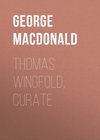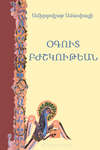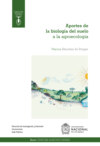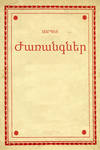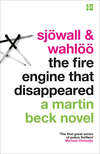Kitabı oku: «Thomas Wingfold, Curate», sayfa 8
CHAPTER XXI. A THUNDERBOLT
Sometimes a thunderbolt, as men call it, will shoot from a clear sky; and sometimes into the midst of a peaceful family, or a yet quieter individuality, without warning of gathered storm above, or lightest tremble of earthquake beneath, will fall a terrible fact, and from the moment everything is changed. That family or that life is no more what it was—probably never more can be what it was. Better it ought to be, worse it may be—which, depends upon itself. But its spiritual weather is altered. The air is thick with cloud, and cannot weep itself clear. There may come a gorgeous sunset though.
It were a truism for one who believes in God to say that such catastrophes, so rending, so frightful, never come but where they are needed. The Power of Life is not content that they who live in and by him should live poorly and contemptibly. If the presence of low thoughts which he repudiates, yet makes a man miserable, how must it be with him if they who live and move and have their being in him are mean and repulsive, or alienated through self-sufficiency and slowness of heart?
I cannot report much progress in Helen during the months of winter and spring. But if one wakes at last, wakes at all, who shall dare cast the stone at him—that he ought to have awaked sooner? What man who is awake will dare to say that he roused himself the first moment it became possible to him? The main and plain and worst, perhaps only condemnation is—that when people do wake they do not get up. At the same time, however, I can hardly doubt that Helen was keeping the law of a progress slow as the growth of an iron-tree.
Nothing had ever yet troubled her. She had never been in love, could hardly be said to be in love now. She went regularly to church, and I believe said her prayers night and morning—yet felt no indignation at the doctrines and theories propounded by George Bascombe. She regarded them as “George’s ideas,” and never cared to ask whether they were true or not, at the same time that they were becoming to her by degrees as like truth as falsehood can ever be. For to the untruthful mind the false CAN seem the true. Meantime she was not even capable of giving him the credit he deserved, in that, holding the opinions he held, he yet advocated a life spent for the community—without, as I presume, deriving much inspiration thereto from what he himself would represent as the ground of all conscientious action, the consideration, namely, of its reaction upon its originator. Still farther was it from entering the field of her vision that possibly some of the good which distinguished George’s unbelief from that of his brother ephemera of the last century, was owing to the deeper working of that leaven which he denounced as the poisonous root whence sprung all the evil diseases that gnawed at the heart of society.
One night she sat late, making her aunt a cap. The one sign of originality in her was the character of her millinery, of which kind of creation she was fond, displaying therein both invention as to form, and perception as to effect, combined with lightness and deftness of execution. She was desirous of completing it before the next morning, which was that of her aunt’s birthday. They had had friends to dine with them who had stayed rather late, and it was now getting towards one o’clock. But Helen was not easily tired, and was not given to abandoning what she had undertaken; so she sat working away, and thinking, not of George Bascombe, but of one whom she loved better—far better—her brother Leopold. But she was thinking of him not quite so comfortably as usual. Certain anxieties she had ground for concerning him had grown stronger, for the time since she heard from him had grown very long.
All at once her work ceased, her hands were arrested, her posture grew rigid: she was listening. HAD she heard a noise outside her window? My reader may remember that it opened on a balcony, which was at the same time the roof of a veranda that went along the back of the house, and had a stair at one end to the garden.
Helen was not easily frightened, and had stopped her needle only that she might listen the better. She heard nothing. Of course it was but a fancy! Her hands went on again with their work.—But that was really very like a tap at the window! And now her heart did beat a little faster, if not with fear, then with something very like it, in which perhaps some foreboding was mingled. But she was not a woman to lay down her arms upon the inroad of a vague terror. She quietly rose, and, saying to herself it must be one of the pigeons that haunted the balcony, laid her work on the table, and went to the window. As she drew one of the curtains a little aside to peep, the tap was plainly and hurriedly though softly repeated, and at once she swept it back. There was the dim shadow of a man’s head upon the blind, cast there by an old withered moon low in the west! Perhaps it was something in the shape of the shadow that made her pull up the blind so hurriedly, and yet with something of the awe with which we take “the face-cloth from the face.” Yes, there was a face!—frightful, not as that of a corpse, but as that of a spectre from whose soul the scars of his mortal end have never passed away. Helen did not scream—her throat seemed to close and her heart to cease. But her eyes continued movelessly fixed on the face even after she knew it was the face of her brother, and the eyes of the face kept staring back into hers through the glass with such a look of concentrated eagerness that they seemed no more organs of vision, but caves of hunger, nor was there a movement of the lips towards speech. The two gazed at each other for a moment of rigid silence. The glass that separated them might have been the veil that divides those who call themselves the living from those whom they call the dead.
It was but a moment by the clock, though to the after-consciousness it seemed space immeasurable. She came to herself, and slowly, noiselessly, though with tremulous hand, undid the sash, and opened the window. Nothing divided them now, yet he stood as before, staring into her face. Presently his lips began to move, but no words came from them.
In Helen, horror had already roused the instinct of secrecy. She put out her two hands, took his face between them, and said in a hurried whisper, calling him by the pet name she had given him when a child,
“Come in, Poldie, and tell me all about it.”
Her voice seemed to wake him. Slowly, with the movements of one half paralyzed, he shoved and dragged himself over the windowsill, dropped himself on the floor inside, and lay there, looking up in her face like a hunted animal, that hoped he had found a refuge, but doubted. Seeing him so exhausted, she turned from him to go and get some brandy, but a low cry of agony drew her back. His head was raised from the floor and his hands were stretched out, while his face entreated her, as plainly as if he had spoken, not to leave him. She knelt and would have kissed him, but he turned his face from her with an expression which seemed of disgust.
“Poldie,” she said, “I MUST go and get you something. Don’t be afraid. They are all sound asleep.”
The grasp with which he had clutched her dress relaxed, and his hand fell by his side. She rose at once and went, creeping through the slumberous house, light and noiseless as a shadow, but with a heart that seemed not her own lying hard in her bosom. As she went she had to struggle both to rouse and to compose herself, for she could not think. An age seemed to have passed since she heard the clock strike twelve. One thing was clear—her brother had been doing something wrong, and dreading discovery, had fled to her. The moment this conviction made itself plain to her, she drew herself up with the great deep breath of a vow, as strong as it was silent and undefined, that he should not have come to her in vain. Silent-footed as a beast of prey, silent-handed as a thief, lithe in her movements, her eye flashing with the new-kindled instinct of motherhood to the orphan of her father, it was as if her soul had been suddenly raised to a white heat, which rendered her body elastic and responsive.
CHAPTER XXII. LEOPOLD
She re-entered her room with the gait of a new-born goddess treading the air. Her brother was yet prostrate where she had left him. He raised himself on his elbow, seized with trembling hand the glass she offered him, swallowed the brandy at a gulp, and sank again on the floor. The next instant he sprang to his feet, cast a terrified look at the window, bounded to the door and locked it, then ran to his sister, threw his arms about her, and clung to her like a trembling child. But ever his eyes kept turning to the window.
Though now twenty years of age, and at his full height, he was hardly so tall as Helen. Swarthy of complexion, his hair dark as the night, his eyes large and lustrous, with what Milton calls “quel sereno fulgor d’ amabil nero,” his frame nervous and slender, he looked compact and small beside her.
She did her utmost to quiet him, unconsciously using the same words and tones with which she had soothed his passions when he was a child. All at once he raised his head and drew himself back from her arms with a look of horror, then put his hand over his eyes, as if her face had been a mirror and he had seen himself in it.
“What is that on your wristband, Leopold?” she asked. “Have you hurt yourself?”
The youth cast an indescribable look on his hand, but it was not that which turned Helen so deadly sick: with her question had come to her the ghastly suspicion that the blood she saw was not his, and she felt guilty of an unpardonable, wicked wrong against him. But she would never, never believe it! A sister suspect her only brother of such a crime! Yet her arms dropped and let him go. She stepped back a pace, and of themselves, as it were, her eyes went wandering and questioning all over him, and saw that his clothes were torn and soiled—stained—who could tell with what?
He stood for a moment still and submissive to their search, with face downcast. Then, suddenly flashing his eyes on her, he said, in a voice that seemed to force its way through earth that choked it back,
“Helen, I am a murderer, and they are after me. They will be here before daylight.”
He dropped on his knees, and clasped hers.
“O sister! sister! save me, save me!” he cried in a voice of agony.
Helen stood without response, for to stand took all her strength. How long she fought that horrible sickness, knowing that, if she moved an inch, turned from it a moment, yielded a hair’s-breadth, it would throw her senseless on the floor, and the noise of her fall would rouse the house, she never could even conjecture. All was dark before her, as if her gaze had been on the underside of her coffin-lid, and her brain sank and swayed and swung in the coils of the white snake that was sucking at her heart. At length the darkness thinned; it grew a gray mist; the face of her boy-brother glimmered up through it, like that of Dives in hell-fire to his guardian-angel as he hung lax-winged and faint in the ascending smoke. The mist thinned, and at length she caught a glimmer of his pleading, despairing, self-horrified eyes: all the mother in her nature rushed to the aid of her struggling will; her heart gave a great heave; the blood ascended to her white brain, and flushed it with rosy life; her body was once more reconciled and obedient; her hand went forth, took his head between them, and pressed it against her.
“Poldie, dear,” she said, “be calm and reasonable, and I will do all I can for you. Here, take this.—And now, answer me one question”
“You won’t give me up, Helen?”
“No. I will not.”
“Swear it, Helen.”
“Ah, my poor Poldie! is it come to this between you and me?”
“Swear it, Helen.”
“So help me God, I will not!” returned Helen, looking up.
Leopold rose, and again stood quietly before her, but again with downbent head, like a prisoner about to receive sentence.
“Do you mean what you said a moment since—that the police are in search of you?” asked Helen, with forced calmness.
“They must be. They must have been after me for days—I don’t know how many. They will be here soon. I can’t think how I have escaped them so long. Hark! Isn’t that a noise at the street-door?—No, no.—There’s a shadow on the curtains!—No! it’s my eyes; they’ve cheated me a thousand times. Helen! I did not try to hide her; they must have found her long ago.”
“My God!” cried Helen; but checked the scream that sought to follow the cry.
“There was an old shaft near,” he went on, hurriedly. “If I had thrown her down that, they would never have found her, for there must be choke-damp at the bottom of it enough to kill a thousand of them. But I could not bear the thought of sending the lovely thing down there—even to save my life.”
He was growing wild again; but the horror had again laid hold upon Helen, and she stood speechless, staring at him.
“Hide me—hide me, Helen!” he pleaded. “Perhaps you think I am mad. Would to God I were! Sometimes I think I must be. But this I tell you is no madman’s fancy. If you take it for that, you will bring me to the gallows. So, if you will see me hanged,–”
He sat down and folded his arms.
“Hush! Poldie, hush!” cried Helen, in an agonized whisper. “I am only thinking what I can best do. I cannot hide you here, for if my aunt knew, she would betray you by her terrors; and if she did not know, and those men came, she would help them to search every corner of the house. Otherwise there might be a chance.”
Again she was silent for a few moments; then, seeming suddenly to have made up her mind, went softly to the door.
“Don’t leave me!” cried Leopold.
“Hush! I must. I know now what to do. Be quiet here until I come back.”
Slowly, cautiously, she unlocked it, and left the room. In three or four minutes she returned, carrying a loaf of bread and a bottle of wine. To her dismay Leopold had vanished. Presently he came creeping out from under the bed, looking so abject that Helen could not help a pang of shame. But the next moment the love of the sister, the tender compassion of the woman, returned in full tide, and swallowed up the unsightly thing. The more abject he was, the more was he to be pitied and ministered to.
“Here, Poldie,” she said, “you carry the bread, and I will take the wine. You must eat something, or you will be ill.”
As she spoke she locked the door again. Then she put a dark shawl over her head, and fastened it under her chin. Her white face shone out from it like the moon from a dark cloud.
“Follow me, Poldie,” she said, and putting out the candles, went to the window.
He obeyed without question, carrying the loaf she had put into his hands. The window-sash rested on a little door; she opened it, and stepped on the balcony. As soon as her brother had followed her, she closed it again, drew down the sash, and led the way to the garden, and so, by the door in the sunk fence, out upon the meadows.
CHAPTER XXIII. THE REFUGE
The night was very dusky, but Helen knew perfectly the way she was going. A strange excitement possessed her, and lifted her above all personal fear. The instant she found herself in the open air, her faculties seemed to come preternaturally awake, and her judgment to grow quite cool. She congratulated herself that there had been no rain, and the ground would not betray their steps. There was enough of light in the sky to see the trees against it, and partly by their outlines she guided herself to the door in the park-paling, whence she went as straight as she could for the deserted house. Remembering well her brother’s old dislike to the place, she said nothing of their destination; but, when he suddenly stopped, she knew that it had dawned upon him. For one moment he hung back, but a stronger and more definite fear lay behind, and he went on.
Emerging from the trees on the edge of the hollow, they looked down, but it was too dark to see the mass of the house, or the slightest gleam from the surface of the lake. All was silent as a deserted churchyard, and they went down the slope as if it had been the descent to Hades. Arrived at the wall of the garden, they followed its buttressed length until they came to a tall narrow gate of wrought iron, almost consumed with rust, and standing half open. By this they passed into the desolate garden, whose misery in the daytime was like that of a ruined soul, but now hidden in the night’s black mantle. Through the straggling bushes with their arms they forced and with their feet they felt their way to the front door of the house, the steps to which, from the effects of various floods, were all out of the level in different directions. The door was unlocked as usual, needing only a strong push to open it, and they entered. How awfully still it seemed!—much stiller than the open air, though that had seemed noiseless. There was not a rat or a black beetle in the place. They groped their way through the hall, and up the wide staircase, which gave not one crack in answer to their needlessly careful footsteps: not a soul was within a mile of them. Helen had taken Leopold by the hand, and she now led him straight to the closet whence the hidden room opened. He made no resistance, for the covering wings of the darkness had protection in them. How desolate must the soul be that welcomes such protection! But when, knowing that thence no ray could reach the outside, she struck a light, and the spot where he had so often shuddered was laid bare to his soul, he gave a cry and turned and would have rushed away. Helen caught him, he yielded, and allowed her to lead him into the room. There she lighted a candle, and as it came gradually alive, it shed a pale yellow light around, and revealed a bare chamber, with a bedstead and the remains of a moth-eaten mattress in a corner. Leopold threw himself upon it, uttering a sound that more resembled a choked scream than a groan. Helen sat down beside him, took his head on her lap, and sought to soothe him with such tender loving words as had never before found birth in her heart, not to say crossed her lips. She took from her pocket a dainty morsel, and tried to make him eat, but in vain. Then she poured him out a cupful of wine. He drank it eagerly, and asked for more, which she would not give him. But instead of comforting him, it seemed only to rouse him to fresh horror. He clung to his sister as a child clings to the nurse who has just been telling him an evil tale, and ever his face would keep turning from her to the door with a look of frightful anticipation. She consoled him with all her ingenuity, assured him that for the present he was perfectly safe, and, thinking it would encourage a sense of concealment, reminded him of the trap in the floor of the closet and the little chamber underneath. But at that he started up with glaring eyes.
“Helen! I remember now,” he cried. “I knew it at the time! Don’t you know I never could endure the place? I foresaw, as plainly as I see you now, that one day I should be crouching here for safety with a hideous crime on my conscience. I told you so, Helen, at the time. Oh! how could you bring me here?”
He threw himself down again, and hid his face on her lap.
With a fresh inroad of dismay Helen thought he must be going mad, for this was the merest trick of his imagination. Certainly he had always dreaded the place, but never a word of that sort had he said to her. Yet there was a shadow of possible comfort in the thought—for, what if the whole thing should prove an hallucination! But whether real or not, she must have his story.
“Come, dearest Poldie, darling brother!” she said, “you have not yet told me what it is. What is the terrible thing you have done? I daresay it’s nothing so very bad after all!”
“There’s the light coming!” he said, in a dull hollow voice, “—The morning! always the morning coming again!”
“No, no, dear Poldie!” she returned. “There is no window here—at least it only looks on the back stair, high above heads; and the morning is a long way off.”
“How far?” he asked, staring in her eyes—“twenty years? That was just when I was born! Oh that I could enter a second time into my mother’s womb, and never be born! Why are we sent into this cursed world? I would God had never made it. What was the good? Couldn’t he have let well alone?”
He was silent. She must get him to sleep.
It was as if a second soul had been given her to supplement the first, and enable her to meet what would otherwise have been the exorbitant demands now made upon her. With an effort of the will such as she could never before have even imagined, she controlled the anguish of her own spirit, and, softly stroking the head of the poor lad, which had again sought her lap, compelled herself to sing him for lullaby a song of which in his childhood he had been very fond, and with which, in all the importance of imagined motherhood, she had often sung him to sleep. And the old influence was potent yet. In a few minutes the fingers which clutched her hand relaxed, and she knew by his breathing that he slept. She sat still as a stone, not daring to move, hardly daring breathe enough to keep her alive, lest she should rouse him from his few blessed moments of self-nothingness, during which the tide of the all-infolding ocean of peace was free to flow into the fire-torn cave of his bosom. She sat motionless thus, until it seemed as if for very weariness she must drop in a heap on the floor, but that the aches and pains which went through her in all directions held her body together like ties and rivets. She had never before known what weariness was, and now she knew it for all her life. But like an irritant, her worn body clung about her soul and dulled it to its own grief, thus helping it to a pitiful kind of repose. How long she sat thus she could not tell—she had no means of knowing, but it seemed hours on hours, and yet, though the nights were now short, the darkness had not begun to thin. But when she thought how little access the light had to that room, she began to grow uneasy lest she should be missed from her own, or seen on her way back to it. At length some involuntary movement woke him. He started to his feet with a look of wild gladness. But there was scarcely time to recognise it before it vanished.
“My God, it is true then!” he shrieked. “O Helen, I dreamed that I was innocent—that I had but dreamed I had done it. Tell me that I’m dreaming now. Tell me! tell me!—Tell me that I am no murderer!”
As he spoke, he seized her shoulder with a fierce grasp, and shook her as if trying to wake her from the silence of a lethargy.
“I hope you are innocent, my darling. But in any case I will do all I can to protect you,” said Helen. “Only I shall never be able unless you control yourself sufficiently to let me go home.”
“No, Helen!” he cried; “you must not leave me. If you do, I shall go mad. SHE will come instead.”
Helen shuddered inwardly, but kept her outward composure.
“If I stay with you, just think, dearest, what will happen,” she said. “I shall be missed, and all the country will be raised to look for me. They will think I have been—“—She checked herself.
“And so you might be—so might anyone,” he cried, “so long as I am loose—like the Rajah’s man-eating horse. O God! It has come to this!” And he hid his face in his hands.
“And then you see, my Poldie,” Helen went on as calmly as she could, “they would come here and find us; and I don’t know what might come next.”
“Yes, yes, Helen! Go, go directly. Leave me this instant,” he said, hurriedly, and took her by the shoulders, as if he would push her from the room, but went on talking. “It must be, I know; but when the light comes I shall go mad. Would to God I might, for the day is worse than the darkness; then I see my own black against the light. Now go, Helen. But you WILL come back to me as soon as ever you can? How shall I know when to begin to look for you? What o’clock is it? My watch has never been—since—. Ugh! the light will be here soon. Helen, I know now what hell is.—Ah! Yes.”—As he spoke he had been feeling in one of his pockets.—“I will not be taken alive.—Can you whistle, Helen?”
“Yes, Poldie,” answered Helen, trembling. “Don’t you remember teaching me?”
“Yes, yes.—Then, when you come near the house, whistle, and go on whistling, for if I hear a step without any whistling, I shall kill myself.”
“What have you got there?” she asked in renewed terror, noticing that he kept his hand in the breast pocket of his coat.
“Only the knife,” he answered calmly.
“Give it to me,” she said, calmly too.
He laughed, and the laugh was more terrible than any cry.
“No; I’m not so green as that,” he said. “My knife is my only friend! Who is to take care of me when you are away? Ha! ha!”
She saw that the comfort of the knife must not be denied him. Nor did she fear any visit that might drive him to its use—except indeed the police WERE to come upon him—and then—what better could he do? she thought.
“Well, well, I will not plague you,” she said. “Lie down and I will cover you with my shawl, and you can fancy it my arms round you. I will come to you as soon as ever I can.”
He obeyed. She spread her shawl over him and kissed him.
“Thank you, Helen,” he said quietly.
“Pray to God to deliver you, dear,” she said.
“He can do that only by killing me,” he returned. “I will pray for that. But do you go, Helen. I will try to bear my misery for your sake.”
He followed her from the room with eyes out of which looked the very demon of silent despair.
I will not further attempt to set forth his feelings. The incredible, the impossible, had become a fact-AND HE WAS THE MAN. He who knows the relief of waking from a dream of crime to the jubilation of recovered innocence, to the sunlight that blots out the thing as untrue, may by help of that conceive the misery of a delicate nature suddenly filled with the clear assurance of horrible guilt. Such a misery no waking but one that annihilated the past could ever console. Yes, there is yet an awaking—if a man might but attain unto it—an awaking into a region whose very fields are full of the harmony sovereign to console, not merely for having suffered—that needs little consoling, but for having inflicted the deepest wrong.
The moment Helen was out of sight, Leopold drew a small silver box from an inner pocket, eyed it with the eager look of a hungry animal, took from it a portion of a certain something, put it in his mouth, closed his eyes, and lay still.
